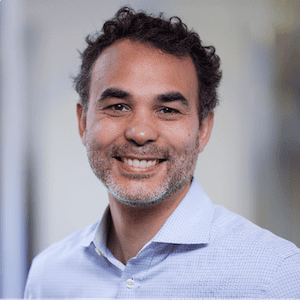-
NexThought Monday – When it Comes to Social Enterprise, It’s Time to Take Ourselves Seriously
It is entirely possible that all of the ideas that we need to end global poverty are in place; however, we have so enthusiastically embraced the financial market metaphor that even the initiatives that must cooperate to succeed can’t do so fully because they are required to compete. There is an old and tired story to be inserted here about the balkanizing influence of competing for funding but instead of focusing on that, I would like to suggest a solution.
- Categories
- Impact Assessment
- Tags
- impact investing
-
Twitter Top Ten – 1-25-15
It was an eventful week in global development - it almost always is. But this week featured a number of particularly important developments, ranging from Bill and Melinda Gates’ trend-shaping annual letter, to some significant new research on microcredit’s impact on poverty. These developments are featured - along with cute rats and an inspiring student - in our weekly top 10 list.
- Categories
- Health Care, Impact Assessment
-
Weekly Roundup – Is Microcredit Lost in ‘Transformation’?
The Abdul Latif Jameel Poverty Action Lab and Innovations for Poverty Action have published six randomized evaluations of microcredit across six different countries. They conclude that “short-term loans generally do not lead to increased income, investments in children’s schooling, or substantial gains in women’s empowerment for poor borrowers.” We discuss what this might mean for microcredit going forward.
- Categories
- Education
- Tags
- research
-
Eight Tech and Policy Trends That Will Impact Financial Inclusion This Year
The use of digital financial services will continue to be one of the main drivers for financial inclusion in 2015, says John Owens of the Alliance for Financial Inclusion (AFI). He discusses eight interesting trends AFI has noted - both on the technology and policy sides - that should have a direct impact on advancing financial inclusion through digital means this year.
- Categories
- Technology
-
‘We Can’t Be the Only Ones’ (Part 2): Jaundice-fighting D-Rev gives its views on markets and success
Before introducing its phototherapy units in a market, D-Rev looks beyond need to barriers to entry. Krista Donaldson, CEO, says that includes factors such as: How present is the aid industry and how does that skew the market? Are products being donated throughout the market? What are the registration costs? Regulatory requirements?
- Categories
- Health Care
-
2015 – The Breakout Year for Agriculture Digital Payments?
For digital finance to really expand throughout the developing world this year, it needs greater uptake among the rural poor, says Lee Babcock. To achieve that, the sector must think about how best to strategically insert digital finance into the agriculture value chain. He explores a number of ongoing initiatives that are focused on doing just that.
- Categories
- Agriculture
-
With Sales Up, D-Rev Doubles Down (Part 1): Launch of upgraded phototherapy unit brings hopes of expanded market
D-Rev sold more Brilliance Classic lights in December than ever before. But the nonprofit’s hoping an upgraded unit, which has manufacturing advantages and builds in two years of feedback from the field, will sell even better.
- Categories
- Health Care
-
Enter Unreasonable Labs: Trial and error on a global scale
Teju Ravilochan, CEO of the Unreasonable Institute says the social enterprise organization needs "co-conspirators" to help them forge a new system of trial and error. They’re looking for 10 teams from 10 locations around the world to run 10 Unreasonable Labs, five-day versions of Unreasonable Institute with 10 ventures each.
- Categories
- Impact Assessment, Social Enterprise










